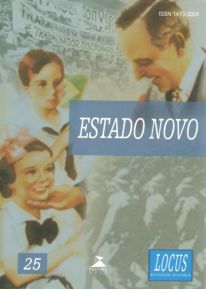"Estado Novo" and the workers: the construction of Latin-American corporatism
Publicado 2011-08-29
Palabras clave
- Estado Novo Regime,
- Workers,
- Corporatism,
- Populism,
- Comparative History
- Latin America ...Más
Cómo citar
Resumen
This article reexamines some aspects of the debate about the nature of the relationship between the Estado Novo regime (1937-1945) and the Brazilian working class, contextualizing them in the framework of the political transformations that took place in Latin America from the 1930's to the 1940's, with emphasis in the comparison between the region ́s three major countries: Brazil, Mexico and Argentina. In what regards to the Brazilian historiography, it examines the elements of continuity and rupture between the Estado Novo regime and the first seven years of Getúlio Vargas rule (1930-1937), aswell as the critique of the concept of "populism" and its proposed replacement by "trabalhismo" ("laborism").


